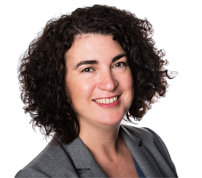Pension Schemes, Survivor's Benefits and Discrimination
The European Court of Justice (ECJ) has held that a university pension scheme in Ireland which only paid full survivor's benefits if an employee had married or entered into a civil partnership before the age of 60 or retirement.
The European Court of Justice (ECJ) has held that a university pension scheme in Ireland which only paid full survivor's benefits if an employee had married or entered into a civil partnership before the age of 60 or retirement - which ever was the earlier - did not discriminate on the grounds of age or sexual orientation. Will this have an impact in the UK?
Background
In the case of Parris v Trinity College Dublin, Dr Parris entered into a same sex civil partnership in the UK in 2009 on his 63rd birthday. He took early retirement in 2010 and started drawing his pension. His UK civil partnership was recognised under Irish law in 2011. Dr Parris raised questions about whether his civil partner would be entitled to full survivor benefits under the scheme in the event of Dr Parris' death. Trinity College said no, because Dr Parris had passed the age of 60 when he had entered into his civil partnership. Dr Parris alleged that this decision was discriminatory on the grounds of age and sexual orientation. In respect of the latter allegation, Dr Parris pointed out that he could not have entered into a same sex civil partnership in Ireland until after his 60th birthday.
The rules of the pension scheme had been put in place to avoid so called 'death bed marriages'.
The ECJ held that the rules of the pension scheme were not discriminatory on the grounds of sexual orientation as they applied equally to heterosexual and homosexual couples. Further, the ECJ held it was a matter for each member state whether it wished to recognise same sex marriages and, if so, when. This meant that the timing of Ireland's decision to recognise same sex partnerships could not lead to a breach of the EU's discrimination laws.
The pension scheme was not discriminatory on the grounds of age because EU law allowed pension schemes to fix the age from which retirement benefits would be paid.
The ECJ did not, as many expected it would, address the question of retrospective effect, i.e. whether pensionable service prior to any change in the law could be taken into account when calculating survivor's benefits.
Effect in the UK
The ECJ's decision comes at a time when the Supreme Court is due to hear appeals in two cases involving benefits under pension schemes. In the case of Walker, the question relates to the historic exclusion of part time workers to pension benefits afforded to full time workers before the Part Time Workers Regulations came into force in 2000. In the case of Innospec, the question relates to the ability of a same sex civil partner to access the same level of survivor's benefits that heterosexual married partner would have access to following the recognition of same sex civil partnerships in 2005.
In both cases the Court of Appeal held that changes in the law did not have retrospective effect. The practical effect of this is that pensionable service before the law changed in relation to part time workers and same sex partnerships/marriages will not count when calculating pension benefits payable now.
The ECJ's decision in Parris will not assist the individuals involved in overturning the Court of Appeal's decision.
Best Practice
The Supreme Court is due to hear the appeals in Walker and Innospec in 2017. Depending on the outcome, these cases could have a dramatic effect on the entitlement of thousands of people to benefits under their pension schemes.
Many pension schemes already, on a voluntary basis, provide full survivor benefits to civil partners.
If you have any concerns about potential employer liabilities in this area, a first step would be to ask relevant questions of the trustees of the company's pension scheme.
